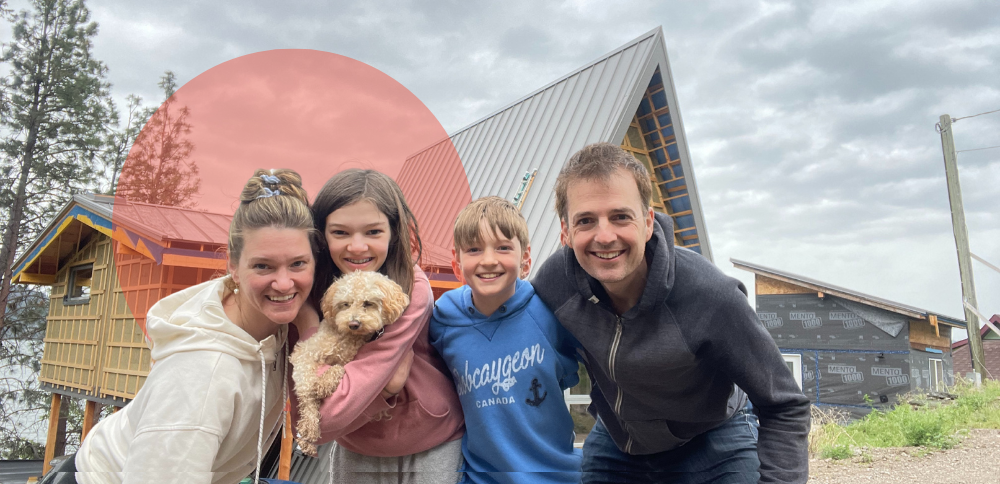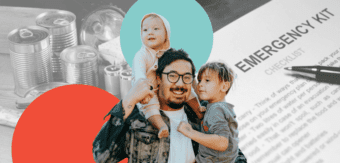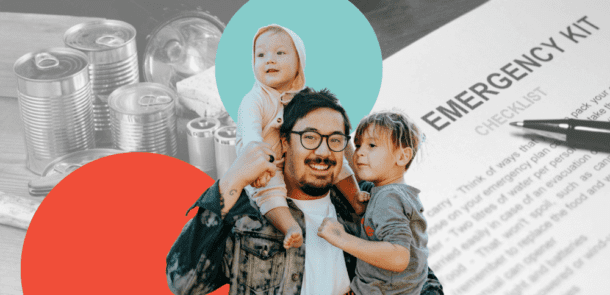Todd Talbot’s dream home burned to the ground in the 2023 West Kelowna wildfire. He saw firsthand how fast things can go from bad to devastating. “Even the night of the fire, I was the last one to leave,” Todd said. “I still didn’t think it would burn down.”
Todd’s story is a cautionary one that every homeowner in the province can learn from. Whether you’re looking to buy your first home, already have a mortgage, or thinking about your insurance, wildfires and other climate-related threats are a reality.
We spoke with Todd, a Vancity member, real estate expert, and co-host of Love It or List It Vancouver, to get his story and advice. The man’s done just about everything when it comes to real estate, including creating a documentary about building and losing his dream home to the wildfire.
We also brought in Vancity’s Mortgage Development Manager, Melissa McCall and insurance expert Kawkab Jamal, to walk you through how to protect your home and finances when the smoke rolls in.
Todd’s story: You never think the worst will happen—until it does.
Todd built his dream home—a passive house on a West Kelowna Lake—with fire-resistant features like a standing seam metal roof, exterior insulation, and non-combustible cladding. He was, in theory, pretty well equipped for wildfire season. When the worst-case scenario became a reality, it was a shock.
The McDougall Creek wildfire turned Todd’s dream home into ash.
“Making a plan with the idea that [a wildfire destroying your home] is an actual possibility is tricky to convince yourself to do,” Todd says. “You have to consider the reality of our changing climate. There’s an increased probability of wildfires and not just in a rural fire zone area, but, as we’ve seen in LA, in urban areas as well.”
“You have to consider the reality of our changing climate. There’s an increased probability of wildfires and not just in a rural fire zone area, but, as we’ve seen in LA, in urban areas as well.” Todd Talbot
Todd’s been in the real estate industry long enough to know that homes need to be more than just aesthetics. “I’m all in on high-performance construction and how we’re building our homes to be more resilient and energy efficient as we move into the future,” he says.
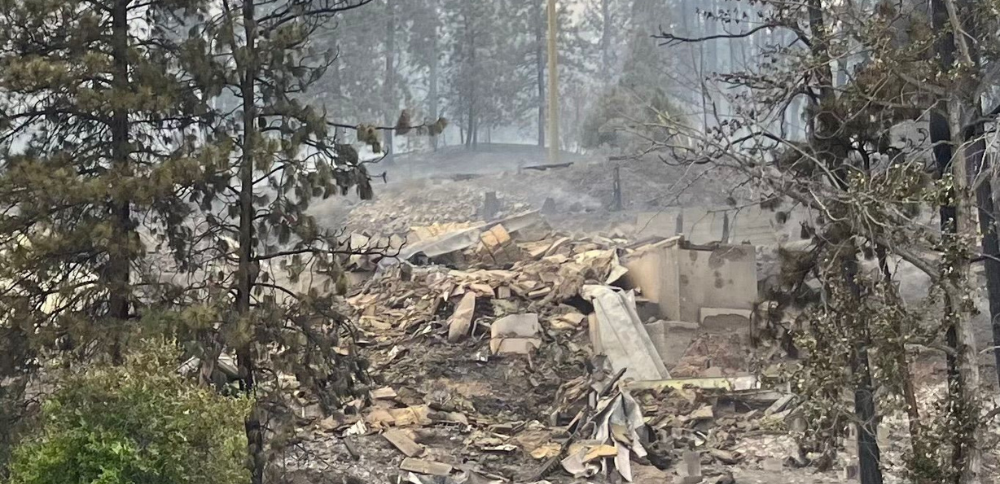
When you consider a home, consider also how a place is going to perform. “Not just in a fire, which is a dramatic and niche experience to go through,” says Todd. “But also consider the things we’re all going to be dealing with, like extreme temperatures, air quality, and flooding.”
Advice from Todd Talbot, who’s truly been through it.
After the wildfire, Todd and his family dealt with insurance claims and started down the long path to rebuilding. One silver lining is that they learned quite a bit about protecting one’s assets and what to do after a disaster.
Here are a few pieces of advice straight from Todd:
Document everything.
Take photos or videos of everything in your house. “Trust me, when you go to file a claim, you cannot remember everything,” says Todd. “You can remember you’ve got a table and chairs, but it’s really difficult to remember the smaller things.”
Keep important items in a storage locker.
Something Todd learned from a friend is to rent out a storage locker. “Take your valuables, like passports, and stuff you can’t replace, like photo albums and your kid’s art, and put it in a storage locker.” This way, you’re not scrambling when it’s time to evacuate.
Understand your insurance policy.
Choose a broker who’s experienced in your specific type of coverage, like a Course of Construction (COC) policy if you’re still building your house. Then, “take a few minutes and actually look at your policy,” says Todd. ”Even if it’s just the broad strokes. And ask your broker any questions you have.”
Ask pointed questions and get your broker’s answers in writing.
There’s no shame in not knowing, only in not asking. And you need that paper trail. “Things written down are invaluable. Email and text communication, and even screenshots of pertinent information is critically important.” Todd says if you get advice, you want it in writing. Making assumptions can be an expensive lesson to learn.
Prepare for power outages in emergencies.
“Have a bit of infrastructure, like a generator or a pump and access to water, that would work in a power outage,” says Todd. “That’s one of the big kickers that affects your ability to protect your property, especially in a rural area.”
Talk to your kids about what matters most to them.
When you talk to your kids, ask them what they’d want to save. Their priorities may surprise you. “My kid lost his Pokémon cards… the insurance company offered like five bucks,” says Todd. “But he’d painstakingly collected those things, and they meant something to him.”
Check out FireSmart BC.
The FireSmart BC program has resources to help everyone reduce wildfire risk. “They have emergency management pillars (prevention and mitigation, preparedness, response and recovery) that people can easily review,” says Todd. “There are basic things that can affect your insurance. It’s a new reality. You might have to give something up, like a certain landscaping style, in exchange for safety and security around your home.”
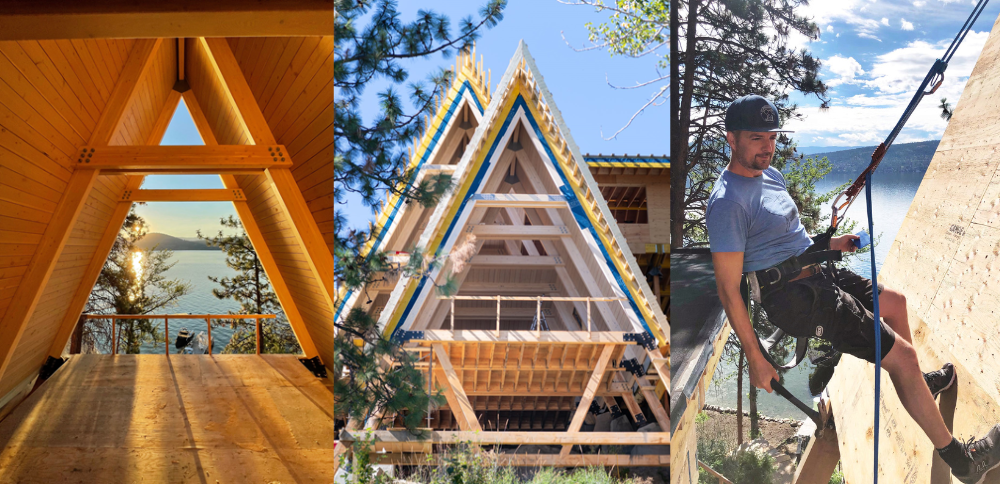
Wildfires and your mortgage: What to expect.
If you’re looking to buy in a wildfire-prone area like the Okanagan, or you already live in one, it’s important to understand how natural disasters can impact your mortgage.
What you need to know when you’re trying to get a mortgage in a high-risk area.
When wildfires are actively burning nearby, getting insurance can be tough. And without insurance, you can’t get a mortgage.
“If insurers are unwilling to provide coverage due to a wildfire near the property, then we’re unable to provide financing,” says Melissa McCall, Vancity Mortgage Specialist.
That means the completion of your home purchase could be held up during an active wildfire. To work around this, some purchase agreements include clauses allowing for an extension of completion until insurance can be secured.
And that’s not the only wildfire-related clause that could affect your mortgage. A force majeure clause, for example, can save your bacon if you’re in the middle of buying or selling your home and it’s destroyed by a wildfire. It basically means you can’t be responsible for an “Act of God” or something totally out of your control.
“Force majeure clauses are common in purchase agreements for homes in high-risk wildfire zones,” says Melissa. “If a home is destroyed before the sale completes, that clause can release both the buyer and seller from the contract.”
What you need to know when you already have a mortgage in a high-risk area.
Already own your home? Well, the bills don’t stop just because of a wildfire. It’s your responsibility to keep paying your mortgage, even if your home is damaged or destroyed. But don’t panic, Vancity has your back.
“If a wildfire affects your home, reach out to us. We’ll work with you to see how we can help,” says Melissa.
If you’re thinking about moving into a high-risk area, such as Kelowna, Kamloops, or Squamish, Melissa has some advice: “Look for homes with fire-resistant features like non-combustible siding or tempered glass windows.” Don’t overlook landscaping, either. Clearing flammable vegetation can make a big difference.
And last, but definitely not least, think about a wildfire mitigation assessment. It could help you protect your property and even lower your insurance premiums.
Pro tip: Ask your insurer if they offer discounts for certified mitigation plans.
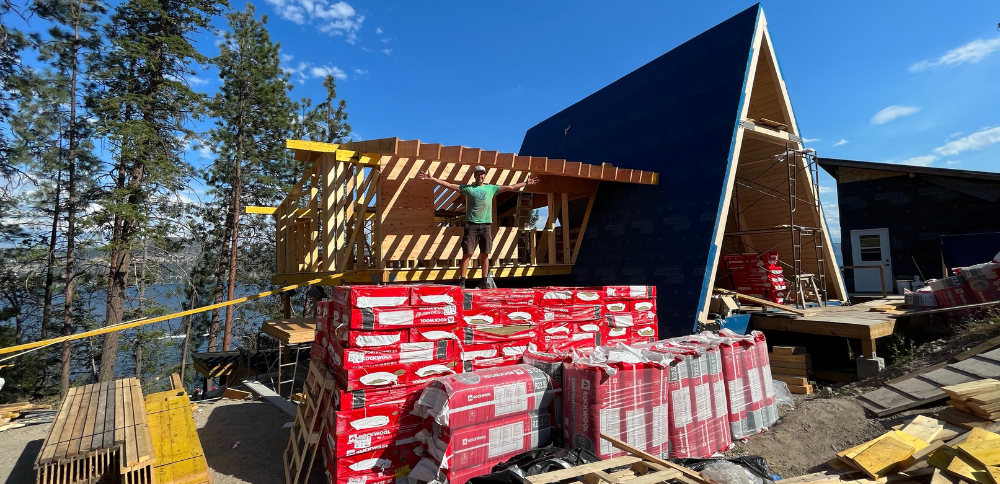
How wildfires affect getting home insurance.
The biggest takeaway? Don’t wait. “Be proactive and protect your home from flood or fire loss,” says Kawkab Jamal, insurance expert and general manager of SCU Insurance Services Ltd. Because once it’s happening, it’s too late.
Most insurers won’t issue new policies if there’s an active wildfire nearby. This is called a ‘binding moratorium’. It usually applies when:
- A wildfire isn’t contained and is within 25 to 100 kilometres of the property (the exact distance varies by insurer).
- The area is under a government restriction.
- There’s an evacuation alert or order in place.
Kawkab explained how some insurance companies use special tools to assess how risky a property is during wildfire season. They look at things like how much dry brush is nearby, how steep the land is, and how easy it is to get to by road. These tools also flag if the home is at risk from flying embers, which are a big wildfire problem. All of these factors can affect how much you pay for insurance and whether or not you can get coverage.
Know, too, that when you’re looking at a high-risk area, you may have a harder time finding a provider. “Insurance companies aren’t obligated to offer coverage for all types of risks,” says Kawkab. “If a risk is outside of their appetite, they may decline to provide any coverage.”
Insurance after a wildfire destroys your home.
If you lost your home to a wildfire and you have fire coverage, your insurance kicks in to help you recover.
Remember earlier when you took our advice and took videos and photos of your home’s contents? Now’s the time to use them. Kawkab says this is valuable documentation for your insurance provider. You’ll also need to send them:
- your policy number
,
- contact information of the insured
,
- risk address,
- the date and type of loss (like fire or floods)
.
“Time is critical,” says Kawkab. “Don’t wait too long to file a claim and assess and document the damage for your adjuster.”
And remember that claims aren’t just for what burned. Wildfire damage can include smoke infiltration, melted siding, or damage to your HVAC system. Depending on your policy, it may also cover stuff like your hotel stay, meals, or even pet boarding. Some policies even cover the food that went bad in your fridge.
One last piece of advice from Kawkab is to be prepared. Protect your home by being climate ready and fire smart. Talk to your adjuster and lean on your insurance broker for guidance. They’re there to help you.
Protect your home by being climate ready and fire smart. Talk to your adjuster and lean on your insurance broker for guidance. They’re there to help you. – Kawkab Jamal, insurance expert and general manager of SCU Insurance Services Ltd.
Vancity can help you weather the season.
Wildfires might be the new summer normal, but that doesn’t mean you’re powerless. When you bank with Vancity, you get local experts who understand the unique risks of homeownership in BC. We’re here to help you make smart, proactive decisions and support you if disaster strikes.
Looking to buy a home in a high-risk area? Connect with a Vancity mobile mortgage specialist for advice specific to you.

